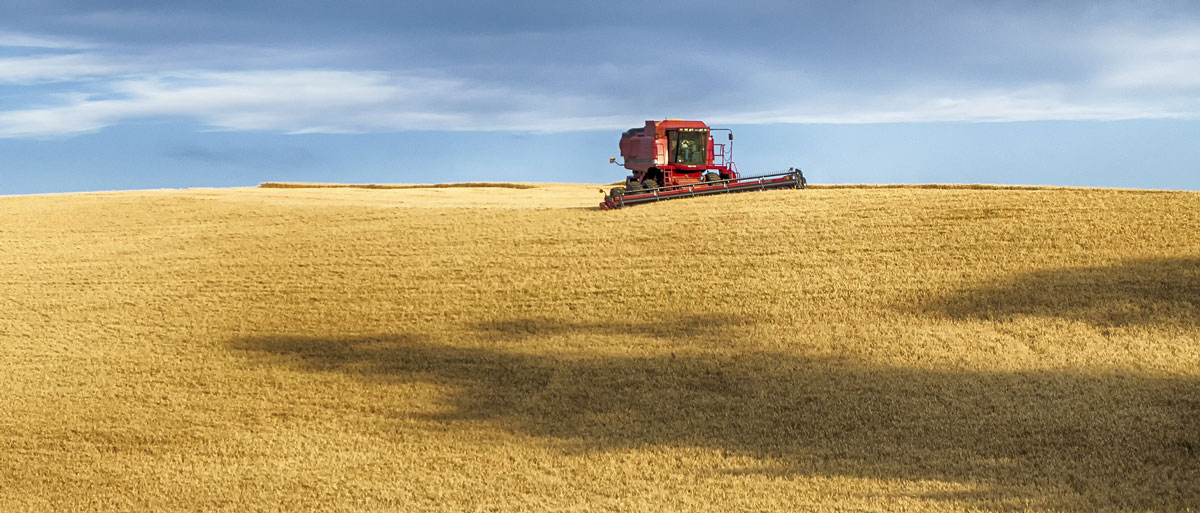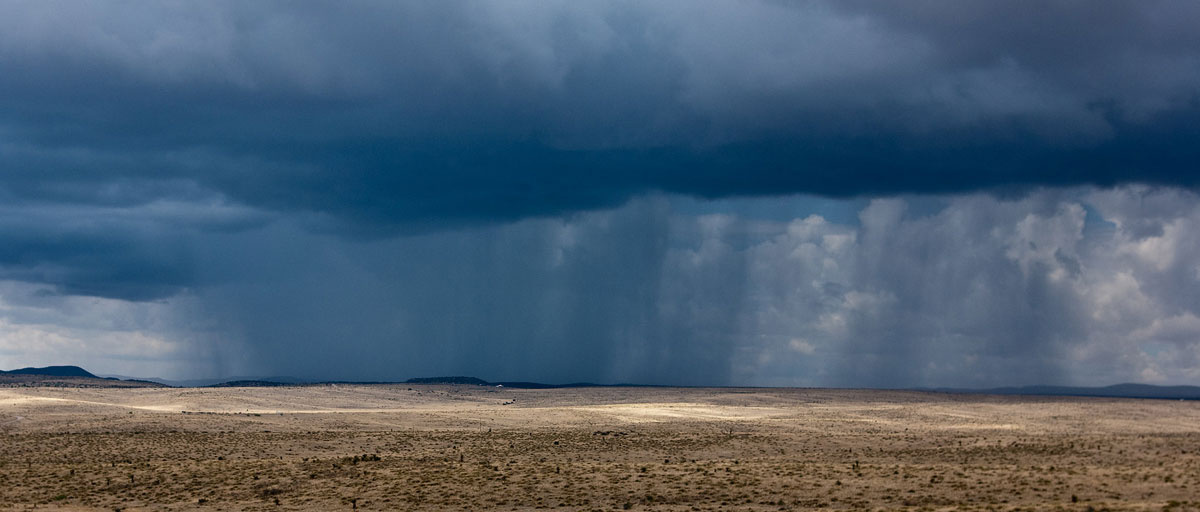Bildtext får vara max två rader text. Hela texten ska högerjusteras om den bara ska innehålla fotobyline! Photo: B. Christensen/Azote
FOOD SECURITY SCENARIOS
A single climate event could trigger worldwide wheat shortages
- What happens if climate change recreates a Dust Bowl-like event similar to that of the 1930s when severe dust storms damaged the ecology and agriculture of American and Canadian prairies?
- Researchers simulates the impacts on global trade networks of such an extreme production shock
- The shock could lead to a 30% decline in wheat reserves globally after four years
How a modern-day US Dust Bowl event could disrupt global food trade networks
A SHOCK TO THE GLOBAL FOOD SYSTEM: The corona pandemic is causing disruptions at a scale never experienced before in modern history.
But what happens if climate change recreates a Dust Bowl-like event similar to that of the 1930s when severe dust storms damaged the ecology and agriculture of American and Canadian prairies?
A study published in Frontiers in Sustainable Food Systems, co-written by centre researcher Miina Porkka along with an international cohort of experts, simulates the impacts on global trade networks of such an extreme production shock.
The future of global food security could be severely compromised.
Assessing the potential impact of extreme weather events not only on food production, but also on the global trade system, is critical for understanding the far-reaching effects of production shocks in a globalized economy.
Miina Porkka, co-author
Cascading effects
Due to the interconnected nature of global food systems and with the US being a major exporter of agricultural products, disruptions to US production can have far-reaching impacts.
Using historical data from the US Dust Bowl period along with data on global wheat production, trade, and reserves, the authors create a model which simulates the cascading effects of a food production shock on the global food network.
The model shows that if the US taps into its reserves, adjusts trade flows, other countries follow. The shock propagates through the entire system until all countries have met their wheat demand, leading to a 30% decline in wheat reserves globally after four years.
Testing the resilience of trade networks
Even though extreme production declines would lead to substantial shortfalls in supply both in the United Stated and in other countries, the magnitude with which a country is hit importantly depends on its reserves and relative position in the trade network.
The authors claim that the approach used in this study can be applied to any shock scenario to test the resilience of trade networks and identify potential weaknesses in it.
“Simulating the effects of such production losses in different producing areas of the world can help in identifying vulnerabilities of food supply to extreme events and target reserve levels to protect populations from food supply crises”, the authors conclude.
Podcast: The role of food in the pandemic: food security, shocks and transformations
Methodology
The authors use historical data on global wheat production, trade, and reserves to create an initial state into which production shocks are then introduced. The historical US Dust Bowl is used as a temporal analog event for US production declines, which are based on observed data of declines in production during the Dust Bowl relative to a 1921–1930 baseline period. The cascading effects of such a disruption through the international trade network of wheat are then simulated using the Food Shock Cascade (FSC) model, whereby a shortage in food supply can either be absorbed at the national level or propagated to trade partners by decreasing exports and increasing imports.
Heslin, A., Puma, M.J., Marchand, P., Carr, J.A., Dell'Angelo, J. et.al. 2020. Simulating the Cascading Effects of an Extreme Agricultural Production Shock: Global Implications of a Contemporary US Dust Bowl Event. Front. Sustain. Food Syst., 20 March 2020









